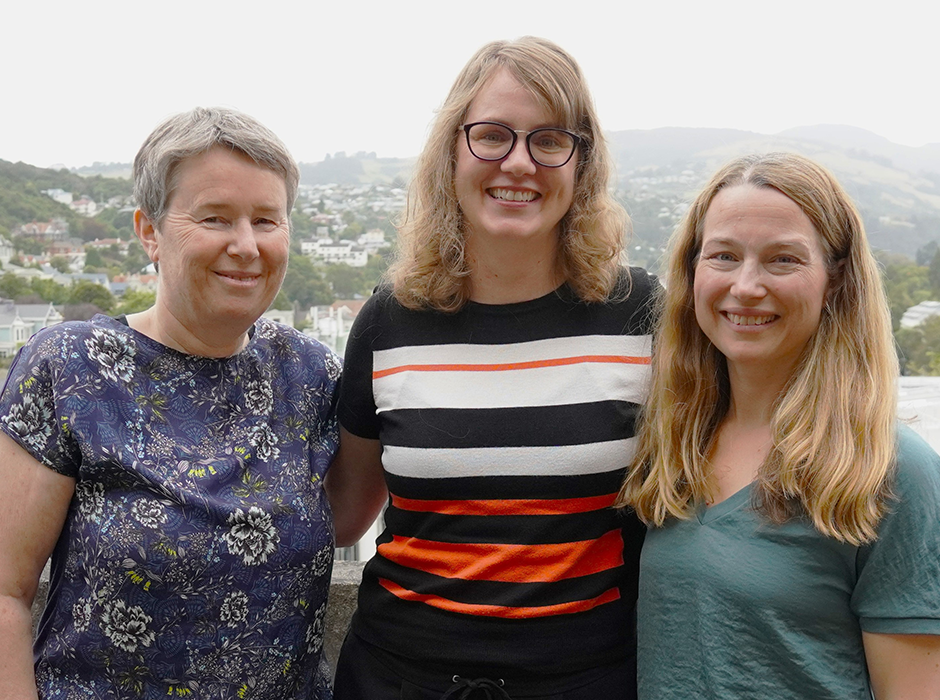
University of Otago Professor Pauline Norris, left, and Dr Amber Young with Uppsala University Associate Professor Susanne Strömdahl when she visited Otago on joint research project this year.
Geographically, the University of Otago and Sweden’s University of Uppsala couldn’t be much further apart.
However, thanks to the help of a recent Matariki Network of Universities (MNU) travel award from Otago’s Internationalisation Committee, the two universities at opposite ends of the globe have been brought closer together and formed strong connections between pharmacy researchers.
The initial connection was made when Professor Pauline Norris from Otago’s Va’a o Tautai – Centre for Pacific Health received the travel award to visit the Department of Social Pharmacy at Uppsala last June.
The relationship has been strengthened over the past couple of months with a visit to the Otago School of Pharmacy by Associate Professor Susanne Strömdahl from Uppsala’s Department of Medical Sciences.
Susanne’s visit focused on a joint research project into Respiratory Syncytial Virus (RSV) – a leading cause of hospitalisation amongst newborn babies.
The project, with Otago School of Pharmacy’s Dr Amber Young, aims to understand preferences for maternal RSV vaccines and infant monoclonal antibody treatments to ultimately increase immunisation uptake and decrease RSV among infants.
Susanne says she’s really enjoyed her time in Dunedin.
“I’ve been fortunate to be working with a great team here, which has provided me with a deeper understanding of both the New Zealand health care system and culture.
“We have identified similar challenges in implementation of the new RSV interventions and opportunities for learning from each other. We now look forward to taking this collaboration further to address vaccination acceptance in both countries.
“I’ve also enjoyed learning about Māori culture and that the University of Otago aspires to include the concept of whanaunatanga into its programmes,” she says.
Pauline, a social pharmacy researcher, says her visit to Uppsala last year identified many overlapping interests.
“In Sweden, pharmacists do not have prescribing rights, while in New Zealand they do – Otago runs a Postgraduate Certificate in Pharmacist Prescribing,” she says.
“One of the Uppsala PhD students was doing research on pharmacist prescribing so I was able to put them in contact with experts at Otago.”
Pauline says she was also able to provide papers to assist an Uppsala academic with a review into the deregulation of pharmacy ownership in Sweden.
“I was delighted to receive the travel award, and to visit and make connections with colleagues in the Department of Social Pharmacy in Uppsala,” Pauline says.
“I think it was a very successful visit and will lead to ongoing collaborations between the University of Otago and Uppsala University.”
The Matariki Network is an international group of leading, historic universities of which the University of Otago and Uppsala University are founding members.
Uppsala, founded in 1477, is the oldest university in Sweden and the Nordic countries, and today has over 50,000 students.
The University of Otago’s MNU Travel Awards aim to develop and strengthen staff connections across the network. More information about the MNU Travel Awards and how to apply is available at www.otago.ac.nz/international/staff.
Kōrero by Kelsey Swart and Jamie Shaw